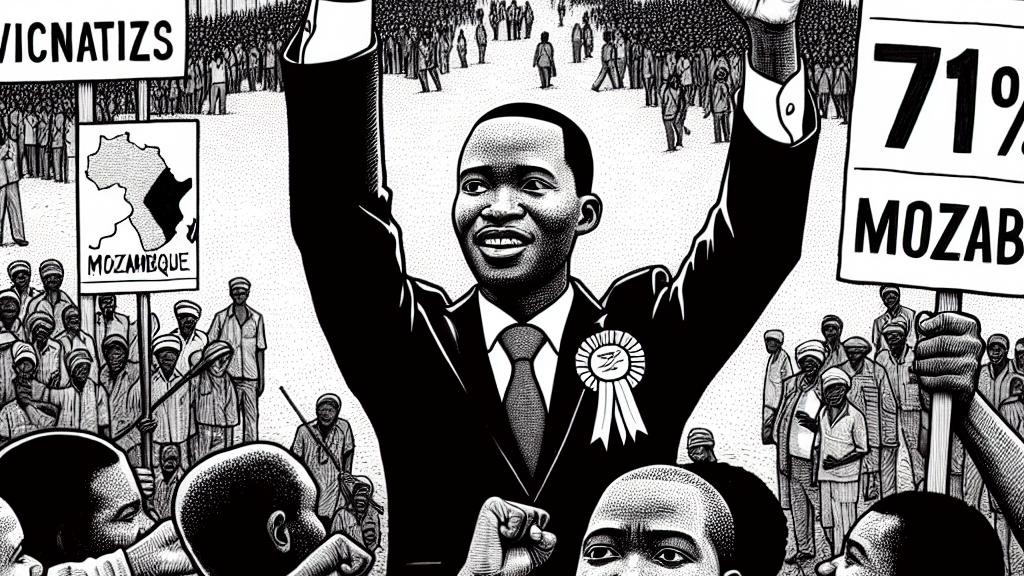Disputed Victory in Mozambique's Presidential Election
Overview
- Daniel Chapo emerges victorious in Mozambique's pivotal election with 71% of the votes.
- The electoral process faces serious scrutiny, with allegations of fraud and violence against opposition.
- In response, opposition leader Venancio Mondlane organizes nationwide protests, demanding transparency.

Election Results: A Turning Point in Mozambican Politics
In a turning point for Mozambican politics, the recent presidential election has stirred deep divisions within the nation. Daniel Chapo, the candidate from the ruling Frelimo party, celebrated a decisive victory with 71% of the votes, yet this win is shadowed by serious concerns about electoral integrity. Chapo represents a new wave of leadership as he becomes the first president born after the country's independence from Portugal in 1975. As he steps into this role, it is crucial to note that only 43% of registered voters participated in the election, suggesting widespread disillusionment with politics. Many citizens expressed their skepticism regarding the electoral process, questioning the legitimacy of the results amidst accusations of longstanding manipulation, a narrative that has become increasingly familiar in Mozambique's political landscape.
Allegations of Fraud and the Opposition's Response
In the aftermath of the election, the atmosphere in Mozambique is charged with tensions. Venancio Mondlane, Chapo's primary opponent and an independent candidate, wasted no time in voicing his concerns. He alleged that the electoral process was fraught with irregularities, including tampering with ballot boxes and unsealed votes, which led to a rallying cry for justice among his supporters. The outrage sparked by these claims has fueled nationwide protests, with demonstrators taking to the streets in a bid for accountability. The protests were marked not only by public dissent but also by violent clashes, including police interventions that heightened the stakes. Furthermore, international observers, particularly from the European Union, reported notable discrepancies in the electoral process, solidifying public sentiment that the results may have been unduly influenced. This chorus of criticism emphasizes the urgent need for political reform and transparent governance.
Looking Ahead: Chapo's Leadership Challenges
As Daniel Chapo prepares to assume his presidential duties, he faces an array of formidable challenges that extend well beyond the contentious election results. Mozambique is currently besieged by a violent insurgency in Cabo Delgado province, where armed groups have exploited economic despair, leading to tragic consequences for local communities. Young people, burdened by high unemployment rates, have been particularly vulnerable to recruitment by these extremist factions. In addition, the economic landscape of Mozambique is marred by the infamous 'tuna bond' scandal, a financial disaster that has left significant scars on the country's economy. Chapo's ability to address and alleviate these issues will be critical; he must act swiftly to restore stability and faith in governance. His leadership will be measured not only by how he navigates these pressing problems but also by his capacity to unite a divided nation and inspire hope for a brighter, more inclusive future.

Loading...